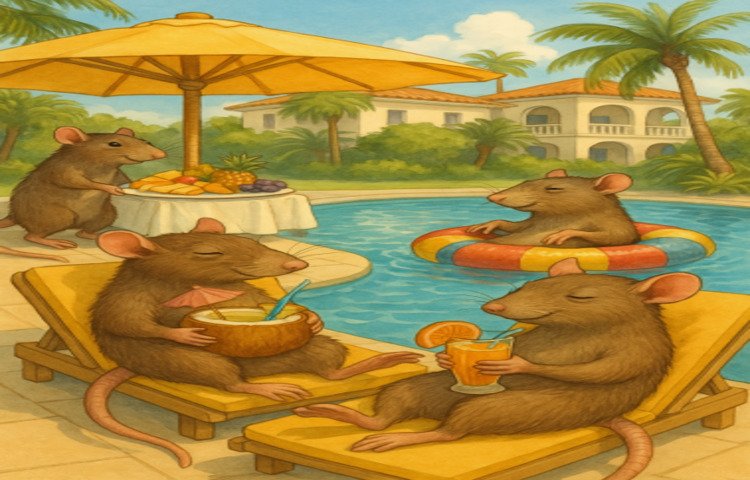Riverside rats enjoying five star all-inclusive holiday
Rats thrive along Derry’s riverside due to food, water, and shelter—creating a public health concern needing urgent pest control action.

In the heart of Londonderry, Northern Ireland, there has been a serious rodent infestation along the popular Queen's Quay river walkway, which is favored by families, pedestrians, and cyclists. This renewed rodent activity has been of concern to homeowners and pest controllers alike, highlighting the necessity for effective urban pest control methods.
The Rise of a Rodent Paradise
Increased sightings have seen dozens of rats roaming in plain sight during the day along Queen's Quay. Patricia Page, a veteran pest control expert and owner of North West Pest and Rodent Control, called the situation a "perfect storm" for the proliferation of rats. She added that the availability of foodstuffs, water, and shelter has made it a perfect environment for the rodents to breed.
"If you've got water and food and shelter, you have a rodent storm brewed there," said Page. "They've got everything they need; it's like a five-star all-inclusive holiday for them, they've even got the sunshine."
The Reasons Behind the Infestation
Several factors have converged to allow this rodent explosion:
- Adequate Sources of Food: Litter and inadequate waste disposal by the public and local businesses have provided the rats with an ensured source of food.
- Shelter Locations: Wooden planters along the quay offer the rodents ample shelter and nesting areas.
- Availability of Water: The location in relation to the river ensures a constant water supply, which is essential to the survival of the rats.
Such conditions not only support the existing rat population but also facilitate fast breeding, aggravating the infestation.
Health and Safety Implications
Having a high rat infestation in a public area has severe health implications. Rats are hosts of various diseases like leptospirosis, salmonella, and hantavirus, which can be transferred to human beings either through direct contact or contact with infected surfaces. Moreover, their tendency to gnaw can lead to damage to infrastructure, which is costly to repair.
Response from Local Authorities
In response to the growing crisis, Derry City and Strabane District Council (DCSDC) has acted quickly to contain the problem. This includes disrupting the paths of travel of the rats and assisting local landowners and businesses in minimizing the infestation.
The DCSDC official disclosed, "We have introduced immediate measures to assist local landowners and businesses in addressing this issue."
Community Involvement and Preventative Measures
Patricia Page highlighted people's role in stemming the infestation. She encouraged individuals to stop dumping food residue and refrain from overfilling bins, as the practices significantly contribute to the problem.
"It is much to do with us, individuals discarding food. Take the harbourage and the food away, and they will not feel comfortable; they will scatter," advised Page.
The Need for Specialist Action
Due to the severity of the infestation, it has been suggested by specialists that a specialist riddance program may be needed in an attempt to manage the rat population effectively. Specialist programs involve strategic baiting and trapping, conducted by licensed pest control operators for effectiveness and safety.
Broader Consequences for Urban Pest Management
The Derry situation is a bitter reminder of the necessity of proactive pest control in urban areas. Urban areas across the world must take care to have regular waste disposal, public education about safe disposal practices, and periodic inspections in order to prevent such infestations.
Conclusion
The rat infestation in Queen's Quay in Derry signifies the delicate balance between urban growth and wildlife management. It emphasizes the need for cooperative action among residents, business owners, and local government to promote public health and safety. By controlling the cause and promoting whole-system approaches to pest control, communities can prevent such infestations and make the environment cleaner and safer for all.













